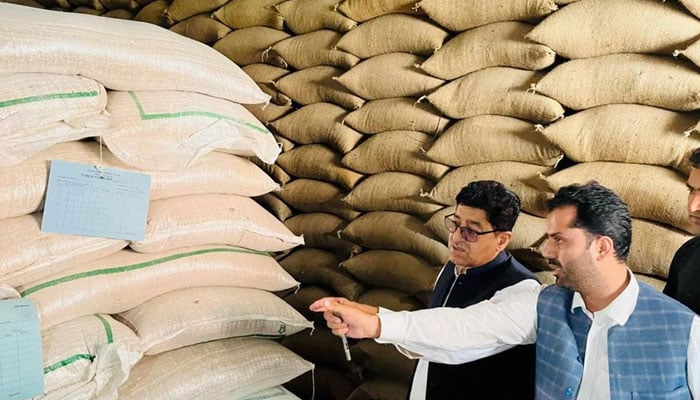The recent Spoiled Wheat Scandal in Khyber Pakhtunkhwa (KP) highlights alarming failures in governance during the PTI-led administration. Wheat worth a staggering 10 billion rupees has been declared unfit for human consumption. This colossal loss exposes the dire consequences of poor planning and oversight under the previous government.
In a heated provincial assembly session, Food Minister Zahir Shah Tooro revealed disturbing details. According to him, wheat samples were tested in two laboratories. One declared the grain unfit for humans, while another report by the Pakistan Council of Scientific and Industrial Research (PCSIR) confirmed that 77,762 metric tons of wheat had deteriorated. This wheat was purchased from PASSCO in 2023 during the PTI and caretaker governments and stored across KP’s warehouses.
The incompetence of the KP government is clear. Instead of managing this vital food resource, officials allowed it to rot. Sources reveal that the government tried to sell the spoiled wheat to flour mills, but even at half price, mill owners refused. They argued the grain had expired and should have been sold earlier. This decision to delay action not only wasted resources but also risked public health.
Minister Tooro claimed the wheat samples were sent to Faisalabad for further analysis. He assured the assembly that strict action would follow if the wheat was proven unusable. However, this assurance does little to repair the damage already done. Opposition members rightly criticized the provincial food department for its negligence, demanding accountability for this shocking mismanagement.
This scandal is a glaring example of how KP’s leadership under PTI prioritized optics over efficiency. The mishandling of wheat—a staple food for millions—reflects poorly on the government’s ability to address critical issues. Furthermore, it raises concerns about food security in a province already struggling with poverty and underdevelopment.
The people of KP deserve better than this negligence. The PTI government’s failure to manage essential commodities not only wastes taxpayer money but also undermines public trust. This spoiled wheat is not just a symbol of decay in KP’s warehouses; it is a stark reminder of the decay in governance that must be addressed.
The Spoiled Wheat Scandal is a lesson in the consequences of poor governance. It reveals the urgent need for transparency and accountability in KP’s administration. As citizens, we must demand reforms to ensure that such failures do not recur. Only then can KP move towards a future where resources are managed effectively for the benefit of its people.


